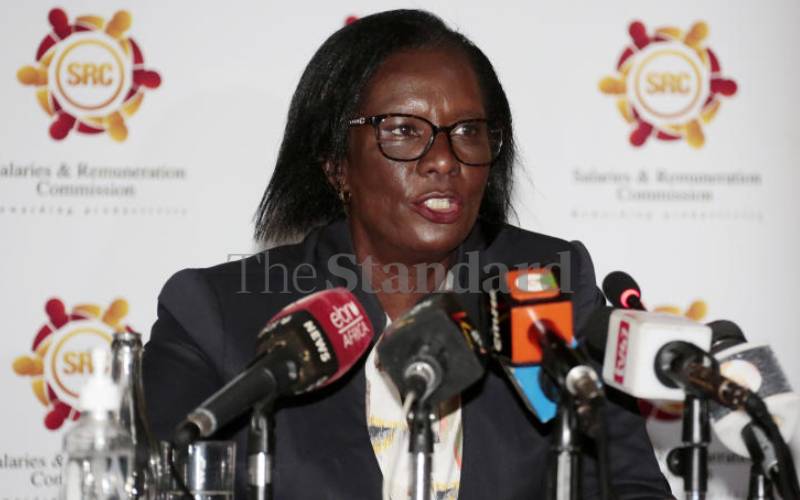×
The Standard e-Paper
Kenya’s Boldest Voice

SRC Chairperson Lyn Mengich during a media briefing on the Out of the Third Public Sector Remuneration and Benefits Review at Hilton Hotel, Nairobi on June 17, 2021. [Boniface Okendo, Standard]
The Salaries and Remuneration Commission (SRC) yesterday froze pay hikes for public servants for the next two years, citing the adverse effects of Covid-19 pandemic.